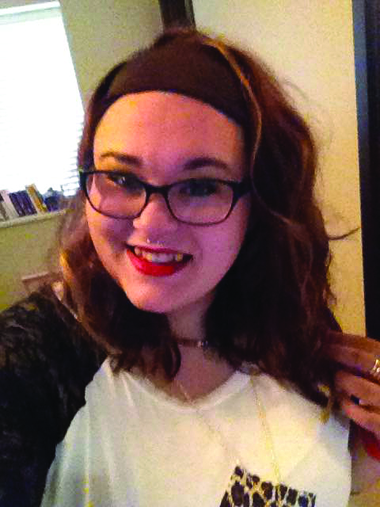Being LGBTQ in a small town

by Nicole Smith
Staff Writer
Living in a small town in the Bible Belt can pose challenges for people who fall into the LGBT spectrum. Harassment, judgment and even violence can be disproportionate compared with that of large cities. While marriage is now legal in all states, that doesn’t stop LGBT people from experiencing prejudice in these communities.
Brody Rhodes, a transgender man, grew up in a small town where he faced occasional discrimination. Though typically we picture hateful strangers as the faces of homophobia, sometimes it can hit us from home.
“My mother was the only person I really had issues with accepting me. She asked if I was ‘queer or just stupid?’ Then proceeded with the typical ‘it's a phase’,” Rhodes said. “In small towns people tend to be more conservative and anti-LGBT in my experience, so I tried to avoid any conversations or situations where I wasn't with someone I trusted and knew well when discussing sexuality or gender identity.”
Although the problem of homophobia is not limited to small towns, many LGBT people find comfort in relocating to a big city.
“Although I usually don't correct strangers when I'm misgendered while still being pre-T, I definitely feel safer living in the city,” Rhodes said. “It is much easier to also find like-minded people and partners who are fully accepting of my differences and who treat me like person.”
Rhodes expressed being more afraid in his hometown while visiting than the large city he now lives in.
“My family lives in very small ‘redneck’ towns and if it weren't for the fact that almost everyone knows my family or half the town is my family, I would definitely fear more for my safety,” Rhodes said. “But I do try to have a family member go with me if I have to go to the store or somewhere when I visit. But I feel perfectly fine going to the store on my own here in the city.”
This has proved to be true in my experience, also. Growing up as a lesbian in a small oil town presented two hard choices: either live in compulsory heterosexuality, or deal with being a target. The first half of my life, I chose the latter.
Bullying was a frequent occurrence until late middle school, where I began dating men out of the pressure I felt. It was not until my move to a city with over half a million people more than my hometown that I felt truly free to express myself.
I am not the only one in my bloodline to find a family with strangers. My brother, a bisexual soldier on a tour in Iraq, found a second family with strangers.
“In the military we are a family,” my brother said. “It does not matter who you like on your own personal time. When you put on the uniform you are a soldier; nothing else matters.”
As we approach Thanksgiving, a holiday centered around family togetherness and gratitude, let’s remember the miles we have traveled to get where we are, and the families we have found along the way.





